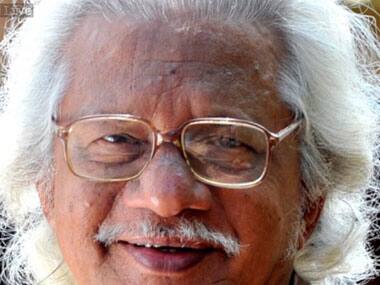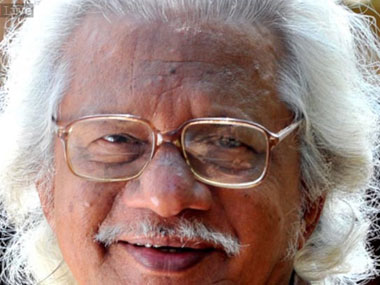So much has been made out of a film festival in Kerala that has gone crazy over the years. What began as a modest step by the government of Kerala to enhance the access of the local population to the masters of the medium has turned out to be a huge success. However, today, the International Festival of Kerala (IFFK) is the venue for a free for all. In a small city such as Thiruvananthapuram, the festival’s permanent venue now, where there is hardly any theatre of international standards, about 10,000 people have registered for the event this year. Three years ago, this was nearly half. And the total number of seats available? 3873. Obviously, two-third of the registrants will stay out of the theatres. A few hundreds will join them as they loiter around, sometimes annoying local residents. If they are really serious about cinema, how do they choose to stay out? If not to watch movies, why do they make the trip at all? Serious film society regulars have been complaining of the mayhem that the festival venues have fallen into because of the excessive crowding. Hooting, indiscriminate use of the cell phones, playing games, making orchestrated noises and conscious efforts to create total anarchy in the theatres have begun to alienate serious cinema lovers and IFFK regulars. What has remained is an event that attracts largely unruly crowds and unusual heroes such as the Korean film maker Kim Ki-Duk. [caption id=“attachment_1808815” align=“alignleft” width=“380”]
 Adoor Gopalakrishnan. IBN Live.[/caption] What has begun as a visionary effort and what has turned out to be an example of democratising access to serious cinema has been overrun by mobs now. Discussions in social media show that for many, the IFFK is not a serious film festival any more. Instead, it’s an annual mela that they don’t want to miss. In the absence of a serious study, it’s impossible to ascertain their motive, but apparent indications point to a effort that has gone terribly awry. Adoor Gopalakrishnan, Kerala’s first and most successful film export to the rest of the world, and perhaps the most globally known Indian film maker after Satyajit Ray - now IFFK’s advisor - wanted to restore order. While others celebrated the air of democracy of the festival, he said its organisation had been orderless during the last two years. He also criticised the disruptive manner in which people behaved and even wondered if they were really serious about cinema. His point was straightforward and simple - there has to be some gatekeeping. He suggested previous exposure and affinity to serious cinema. A few basic questions were introduced for the registration purpose. Besides gate-control, the effort was also to generate a database which the government and IFFK could use to improve the conduct of the festival. After all when the government spends about Rs 7.5 crore a year on the festival, it should know the profile of the attendees, the good and the bad so that the expenditure of the public money is accounted for. What Adoor could have avoided was his habitual annoyance to criticism - apparently peeved by unfriendly questions at a press conference, he even said that people who couldn’t follow the English subtitles need not attend the festival. What happened next was truly reflective of the character of the mob. A commercial film maker, whose only claim to fame has been unimaginative retrograde rubbish, started giving his treatise on serious cinema on TV channels while a popular writer, who had ripped apart Adoor’s biography in 2010, appeared motivated to tweet anarchist voices. Several in the social media also called him names and attributed class and caste tendencies and said that his attempt was the desperation of the old guard to wrest control and reinstate feudal order. The popularity of the festival was reflective of the enthusiasm of the youth, they said. Kerala, and particularly cities such as Thiruvananthapuram, are not new to serious cinema and film-literacy. From the state’s first film society Chitralekha in 1965, (Adoor was one of the people who were instrumental in its establishment) in Thiruvananthapuram, Kerala subsequently had film societies, not one, but many, in all districts. International classics and films of masters had been screened even in villages. When Adoor wanted to have some prior exposure to serious cinema to regulate the number of people because the festival was unmanageably crowded, he would have meant only some exposure to these film societies. If one is really so serious about cinema that they don’t want to miss the IFFK and its contemporary fare, one would have shown some inkling to the same in the past. Is the craze over IFFK truly reflective of an affinity towards serious cinema? Then, how come the film festival movement in the state, that took world cinema to its remote corners, is in a limbo? And how come, despite the advent of cheaper ways of digital film making, contemporary Malayalam cinema is not a patch on the movies of the past? Sadly, yet another creative space has been overrun by mobs and non-stakeholders.
Adoor Gopalakrishnan. IBN Live.[/caption] What has begun as a visionary effort and what has turned out to be an example of democratising access to serious cinema has been overrun by mobs now. Discussions in social media show that for many, the IFFK is not a serious film festival any more. Instead, it’s an annual mela that they don’t want to miss. In the absence of a serious study, it’s impossible to ascertain their motive, but apparent indications point to a effort that has gone terribly awry. Adoor Gopalakrishnan, Kerala’s first and most successful film export to the rest of the world, and perhaps the most globally known Indian film maker after Satyajit Ray - now IFFK’s advisor - wanted to restore order. While others celebrated the air of democracy of the festival, he said its organisation had been orderless during the last two years. He also criticised the disruptive manner in which people behaved and even wondered if they were really serious about cinema. His point was straightforward and simple - there has to be some gatekeeping. He suggested previous exposure and affinity to serious cinema. A few basic questions were introduced for the registration purpose. Besides gate-control, the effort was also to generate a database which the government and IFFK could use to improve the conduct of the festival. After all when the government spends about Rs 7.5 crore a year on the festival, it should know the profile of the attendees, the good and the bad so that the expenditure of the public money is accounted for. What Adoor could have avoided was his habitual annoyance to criticism - apparently peeved by unfriendly questions at a press conference, he even said that people who couldn’t follow the English subtitles need not attend the festival. What happened next was truly reflective of the character of the mob. A commercial film maker, whose only claim to fame has been unimaginative retrograde rubbish, started giving his treatise on serious cinema on TV channels while a popular writer, who had ripped apart Adoor’s biography in 2010, appeared motivated to tweet anarchist voices. Several in the social media also called him names and attributed class and caste tendencies and said that his attempt was the desperation of the old guard to wrest control and reinstate feudal order. The popularity of the festival was reflective of the enthusiasm of the youth, they said. Kerala, and particularly cities such as Thiruvananthapuram, are not new to serious cinema and film-literacy. From the state’s first film society Chitralekha in 1965, (Adoor was one of the people who were instrumental in its establishment) in Thiruvananthapuram, Kerala subsequently had film societies, not one, but many, in all districts. International classics and films of masters had been screened even in villages. When Adoor wanted to have some prior exposure to serious cinema to regulate the number of people because the festival was unmanageably crowded, he would have meant only some exposure to these film societies. If one is really so serious about cinema that they don’t want to miss the IFFK and its contemporary fare, one would have shown some inkling to the same in the past. Is the craze over IFFK truly reflective of an affinity towards serious cinema? Then, how come the film festival movement in the state, that took world cinema to its remote corners, is in a limbo? And how come, despite the advent of cheaper ways of digital film making, contemporary Malayalam cinema is not a patch on the movies of the past? Sadly, yet another creative space has been overrun by mobs and non-stakeholders.
Adoor is right: The Kerala film festival is completely out of control
G Pramod Kumar
• November 18, 2014, 15:26:00 IST
So much has been made out of a film festival in Kerala that has gone crazy over the years.
Advertisement
)
End of Article